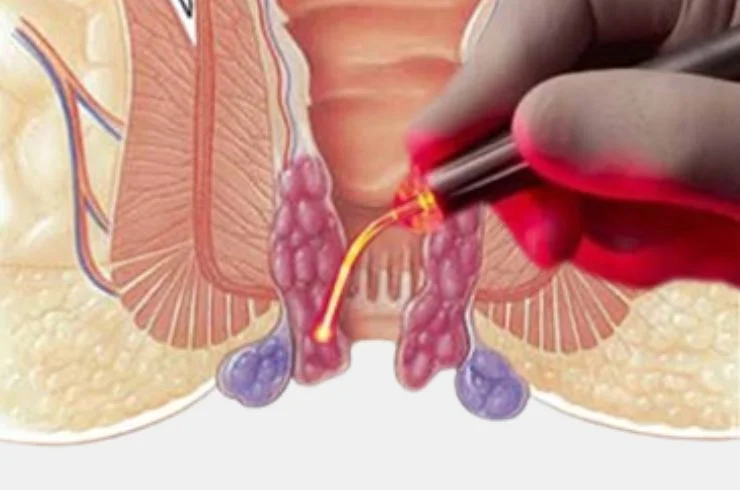
Piles, also known as hemorrhoids, are a common condition that can cause discomfort, pain, and sometimes bleeding. While traditional treatments for piles may involve surgery or medications, laser treatment has emerged as a highly effective, minimally invasive alternative. At Saru Hospital, we offer advanced laser treatment for piles, providing our patients with a quicker, less painful solution that promotes faster recovery and minimal scarring.
Laser treatment for piles involves the use of a focused laser beam to shrink and eliminate hemorrhoidal tissue. The laser targets the blood vessels that supply the hemorrhoids, causing them to coagulate and shrink. This procedure is performed under local anesthesia, making it much more comfortable for patients compared to traditional methods.
The laser treatment is a quick and effective procedure that usually lasts between 15-30 minutes. Here’s how it works:
Laser treatment is suitable for individuals suffering from:
Patients with severe Grade 4 hemorrhoids (large, prolapsed, or thrombosed piles) may require alternative treatments or a combination of therapies, which our specialists will discuss during a consultation.
One of the major advantages of laser treatment for piles is the quick recovery time. Most patients can resume their normal activities within 1-2 days. However, to ensure a smooth recovery, it’s important to follow a few aftercare instructions:
If you’re suffering from piles and looking for a safe, effective, and minimally invasive solution, Saru Hospital in Mumbai is here to help. Contact us today to schedule a consultation with one of our specialists and learn more about how laser treatment for piles can provide you with lasting relief.
The hemorrhoidal mass receives laser energy once a laser beam is directed through the anal aperture. The hemorrhoidal mass contracts when the submucosa zone is reached by the carefully regulated laser light emission. By creating new connective tissue during fibrosis regeneration, the mucosa can stick to the underlying tissue and avoid prolapse from happening again.
1. Shorter operations
2. Better results
3. Quicker healing
4. Less pain
1. Internal
2. External
3. Prolapsed
4. Thrombosed
1. Sitting for a long time
2. Lifting very heavy objects daily
3. Constipation or diarrhoea
4. Poor hygiene
5. High stress
6. Overuse of laxatives
7. Not answering nature’s call on time
8. Avoiding surgical treatment
1. The Roughage in the diet is excreted with the other waste products from the intestines
2. The water-absorbing fibre loosens the stools and helps in easy passage of the body waste
Thus, this reduces the pain and inflammation caused by piles.
If your piles are caused by chronic constipation, try not to eat too many foods with little or no fibre, such as
1. Cheese
2. Chips
3. Fast food
4. Ice cream
5. Meat
6. Prepared foods, such as some frozen and snack foods
If your piles are caused by chronic constipation, try not to eat too many foods with little or no fibre, such as
1. Leafy vegetables,
2. Whole-grain cereals
3. Millets
4. Salads
5. Unpeeled fruits
6. Unstrained soups with your meal
Ask for medical help if you notice pain and discomfort around your anus when you sit or have a bowel movement. Consult Piles doctor in Nashik for treatment.